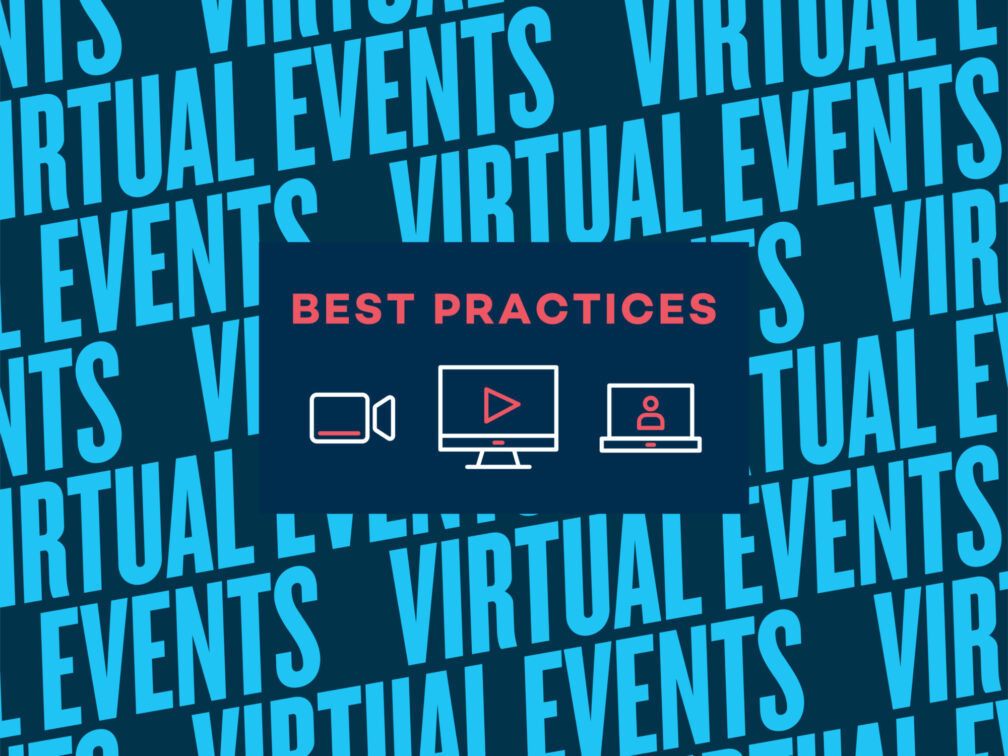Blog
Events + Experiences

Best Practices for Virtual Events that Engage & Convert
Creating great customer experiences is more important than ever. That’s why, given the environment that is 2020 (and beyond), 78% of marketing leaders plan to increase their budgets for virtual events. So how do you create one that keeps attendees engaged? That helps you learn more about your customers? That makes money?
As marketers, we need to accept and embrace the new reality we're in today, and it's predominantly digital. Your company's value proposition is the same, and that means the reason your attendees choose to come to your event should be the same. The only thing that's changed is the content's delivery. In our recent webinar, Dixon Schwabl Board Chair Lauren Dixon, Monroe Community College Chief Advancement Officer Gretchen Wood and GDS Group Vice President of Product & Innovation Harlan Davis discussed the important elements virtual events must include to become an integral part of your marketing strategy.
Here are a few of the key questions viewers sent in during the webinar and how our panel of experts addressed them.
Or click here to watch the full webinar on demand.
What are the core tenets of a virtual event plan?
1. Communication
Map out the number of times you’re going to communicate with your sponsors and your attendees. "It’s all about creating the vibe," Lauren said, and that starts in the communications leading up to your event. A multi-dimensional mailer can complement email efforts and cut through the clutter.
A microsite, landing page or even mobile app can keep up-to-date event information organized and top of mind with attendees while building education and excitement. Social media is helpful for promoting your event and driving traffic to your site.
2. Flow
Keeping an audience's interest and attention is always a challenge, but even more so in a virtual setting. Consider an opening video to set the tone and showcase your event's theme.
And remember, less is more in this space. A tightly produced virtual event that runs just under an hour is a safe bet for shrinking attention spans.
3. Follow Up
Event follow-up is always recommended, and it's even more natural in the virtual realm. Send an email—show gratitude for your audience and their contribution of time or treasure.
"Follow-up between businesses and individuals is happening in a more organic, impactful way," Harlan said. That's especially true compared to physical events, where attendees eventually leave the cocoon of the in-person experience you just provided.
How can companies that aren't super tech-savvy still produce memorable virtual events?
"We’re all learning this together," Gretchen said, "and people are generally happy to collaborate and share their best practices. As much as the world has been further apart, we’ve actually never been closer together. Most of the time, the people you’re interacting with are rooting for you to succeed."
"No guts, no glory," Lauren said—the reward is worth the risk of trying something new. If you don't have the internal capacity to pull off a virtual event, look to partner with an agency that can handle all or parts of it. "It is critically important to do it right and create a spectacular event the first year, because if you don’t, people will remember and they won’t come back."
And remember, Harlan said, it's all about context. Marketers should start by thinking about what the audience wants and needs to get out of the event, then ask if you're delivering it. "The event's content is always key, and the technology is a backdrop to bring that to life."
"Innovation is not doing something that’s never been done," he said. "It’s doing something you’ve never done before. Figure out what you're trying to achieve and then find a vehicle to deliver it." It's about using technology to create an immersive experience that your audience feels part of—prioritize substance over style and find ways to engage attendees or let them interact with each other. "The technology is just there to facilitate the real reason people are at your event."
How can businesses generate qualified leads from virtual events?
This is where virtual actually has advantages over physical. You can extend any experience before and beyond the event itself by creating an environment with a clear agenda and set expectations.
You know your attendees ahead of time and can get them thinking about who they want to connect with—and how they can extract the most value from attending before they even get there. By asking your audience these questions before the event, marketers can personalize the experience even more powerfully.
With digital comes data, and by tracking what people are reacting to or interacting with, you can continually refine the experience to make it more meaningful to your audience.
What should nonprofits consider when planning a virtual gala or fundraising event?
While Gretchen acknowledged that it's harder to engage new people through virtual-only events when in-person has been the norm, it's a good challenge for marketers to keep differentiating their brands. Especially with so many people on screens all day long. Asking them to take time out and attend your virtual event will require careful thought about how to make it special and and worth their time.
Virtual events provide an added cost efficiency when you don't have to factor in venue, food and chachkies. But, Lauren said, it's still important to "create the wow and the sizzle," even behind the screen.
Looking to plan an In-Person, Virtual or Hybrid Event?
We can help with that! Take a look at how we helped Monroe Community College raise $220,000 during its virtual Gold Star Gala this past summer.
Learn more about our event offerings or get in touch with our team.
Christina Nordquist
Christina Nordquist is DS+CO’s director of content marketing, creating strategies that elevate our agency and our clients.